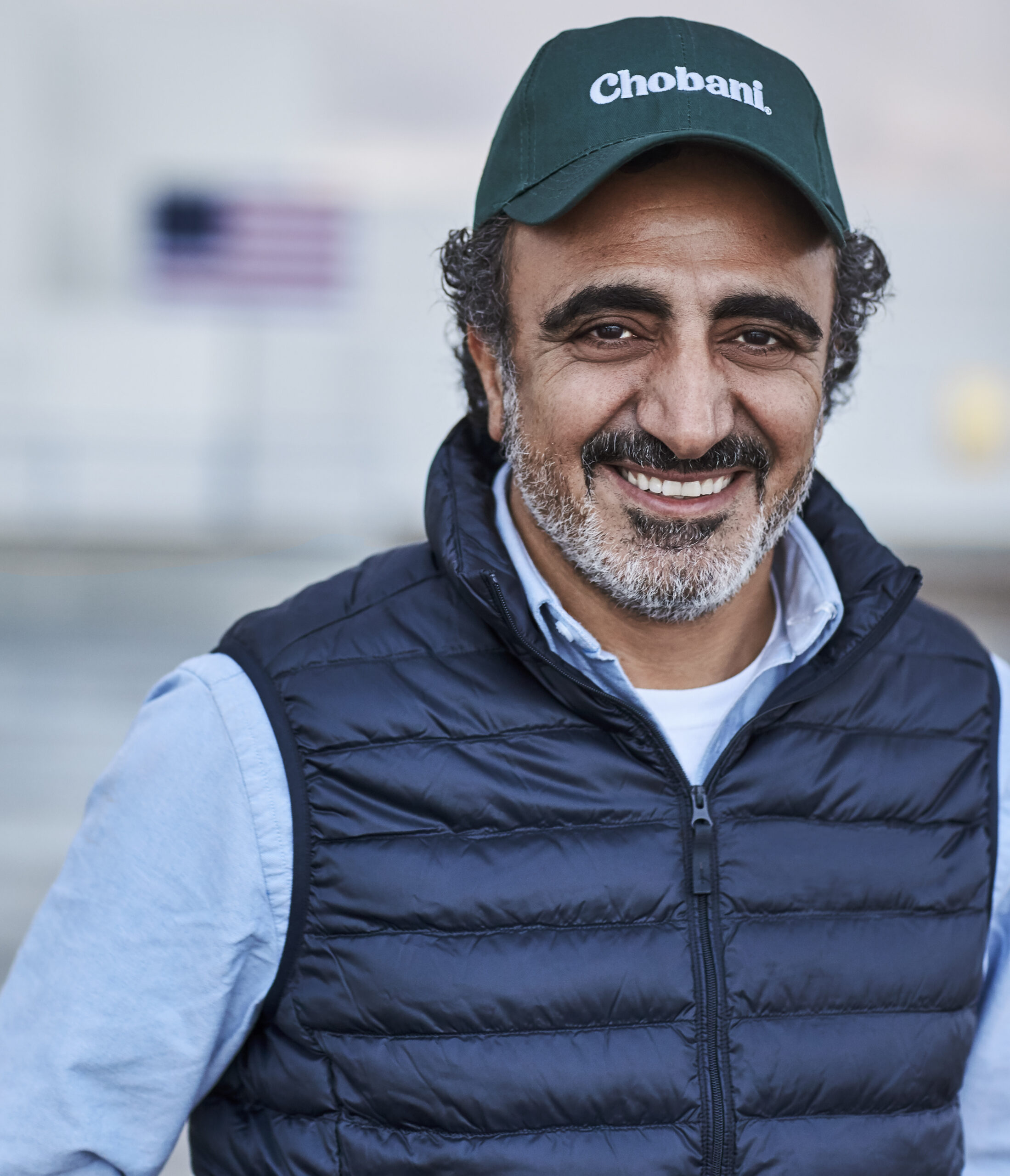
Country of origin: Turkey
Year came to U.S.: 1994
Organization: Chobani
Headquarters: Norwich, NY
2023 revenue: $2 billion [estimate]
U.S. employment: 2,000+

Hamdi Ulukaya donates 10 percent of Chobani’s profits to charitable causes.
Chobani led the expansion of Greek yogurt from less than one percent to 50 percent of the yogurt market in the U.S.
Biography
Hamdi Ulukaya learned to care about both dairy products and supporting marginalized people from a young age. Ulukaya was born in the mountains of Turkey to a family of nomadic Kurdish dairy farmers, an ethnic group that faces persecution in the region. Ulukaya came to the United States both to seek a college education and to escape Turkey’s mistreatment of Kurds.
His first entrepreneurial venture, a feta cheese business, proved too niche for American tastes. Success arrived when Ulukaya bought a dilapidated factory in Twin Falls, New York, turned it into a Greek yogurt manufacturing facility and called his new business Chobani. The once-abandoned factory now contributes $2 billion to the local economy and keeps the region at close to full employment.
Chobani introduced Greek-style strained yogurt, a method of yogurt preparation that was thicker, higher in protein and lower in sugar than most brands then sold in the United States. The business took off. Within five years, Chobani was the biggest Greek yogurt seller in the United States and surpassed $1 billion in yearly sales. Within 12 years, Chobani had led the expansion of Greek yogurt from less than one percent to 50 percent of the yogurt market.
Ulukaya has set himself apart from other CEOs with his strong sense of social responsibility. It’s also good for business. He says that treating workers well is “an important part of our success. Higher wages help us keep and motivate passionate people.” As an immigrant, he understands the struggles that other immigrants and refugees face in the labor market. After visiting refugee camps in Greece, he arranged for refugees to get jobs at his facilities and supported the new workers with transportation, translators, and the above-average wages and benefits that are typical at Chobani. Now, 30 percent of his workers are refugees. Ulukaya also committed 10 percent of Chobani’s profits to charitable causes and $2 million of his own money to the United Nations High Commissioner for Refugees.
Amid the food shortages of the COVID-19 pandemic, Chobani ran its factories 24/7, getting fresh food on grocery shelves as well as shipping truckloads of products directly to foodbanks. The company has also implemented safety measures in plants that prevented any outbreaks, provided extra leave to employees and organized on-site vaccinations to keep its workers safe. Chobani is set to go public in 2022. When it does, it will create sizeable payouts for office workers and factory workers alike thanks to Ulukaya’s decision in 2016 to give 10 percent of the company’s shares to his employees.
Updated September 2024
